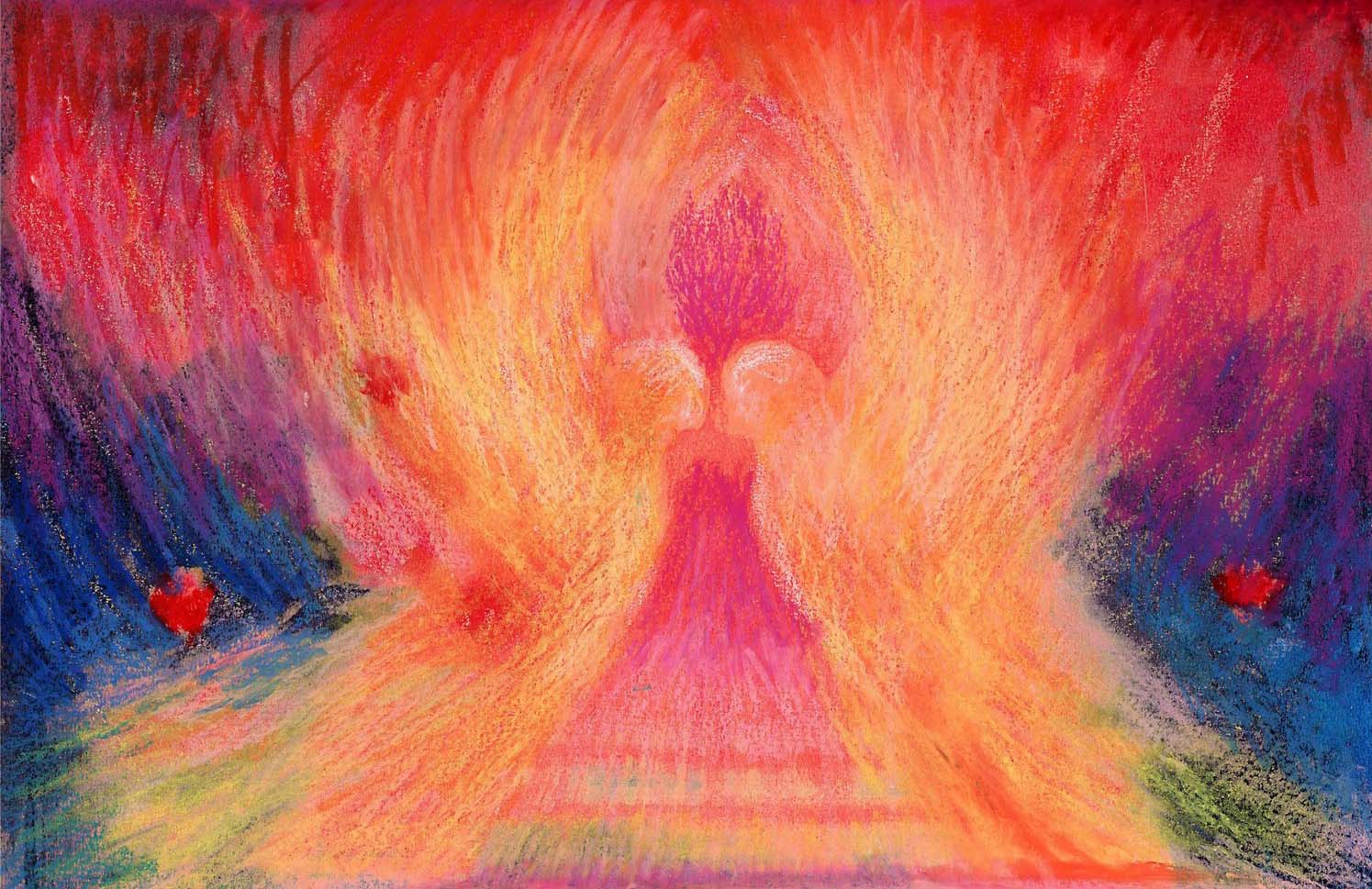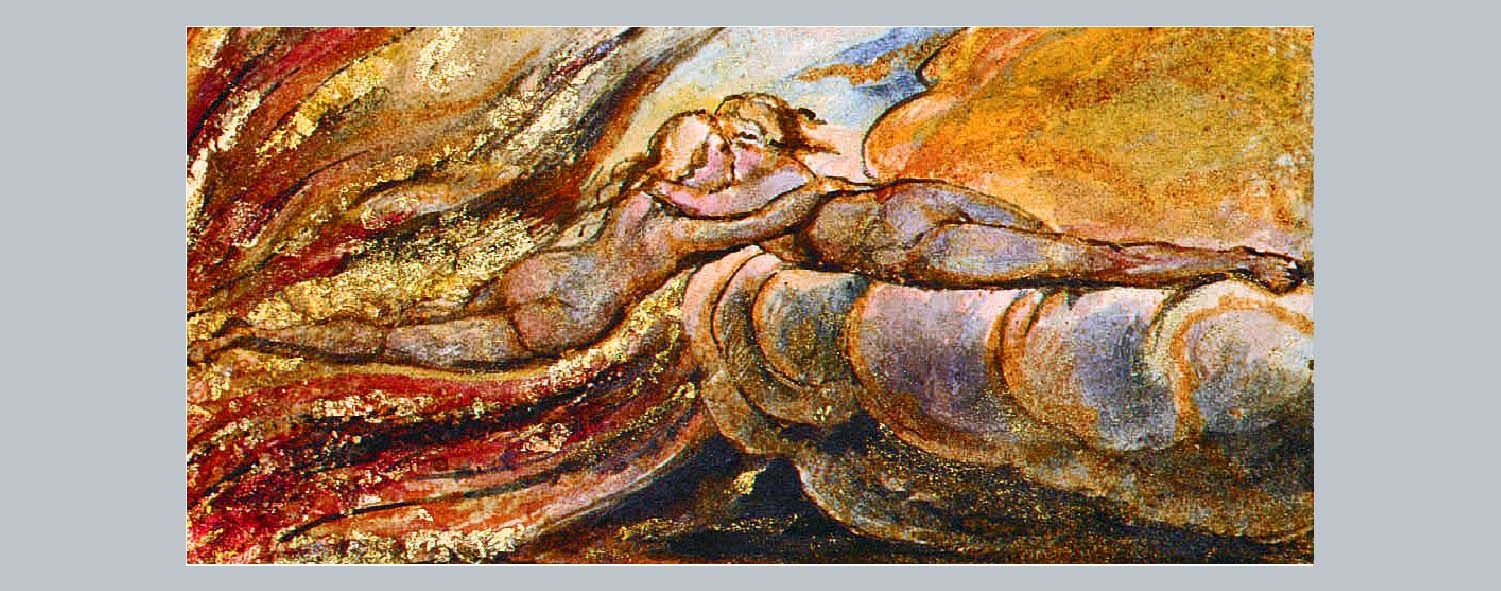| Discourses | Biography | Portfolio |
| Desire | Leda | Passion | Beauty | Tattoo | Fruits | Flowers | The Mirror | Aging | Yitro |
One of the Shabbat dinners I hosted coincided with Saint Valentine’s Day (Feast of St. Valentine), on 2/14/2019.
The customs connected to the celebration of this day have their origin in a pagan Roman fertility festival known as Lupercalia that occurred on February 15th, as well as the old English belief that birds choose their mates on February 14. Whatever the origin, Valentine today is considered the patron saint of lovers and a source of help for those who are unhappy in affairs of the heart.
The Torah segment for that week was Yitro, (Exodus 18:1-20:23), which introduces the 10 commandments. The connection to love is found in the text describing the construction of the Ark that housed the ten commandments.
Atop of this ark were cherubim, winged angels attending to God, described as one embraced with his lover, intertwined face-to-face. Kabbalists understood that the cherubs conveyed the masculine and feminine names of God, and when united, were in effect the unification of God’s Name. The essence of the male and female elements respectively is the concept of giving and receiving. The 1981 movie, Indiana Jones and the Raiders of the Lost Ark, introduced the movie public to this Ark.
And thou shalt make two cherubim of gold, …. And make one cherub on the one end, and the other cherub on the other end … And the cherubim shall stretch forth their wings on high, covering the mercy seat with their wings, and their faces shall look one to another… And there I will meet with thee, and I will commune with thee …
God was said to have spoken with Moses from between the two cherubim.
According to this image, God is in the passionate relationship of these Cherubim, rather than in the tablet of the law that is housed within the ark. God is in love, not in law. God is in passion, not in rules. You take away the cherubs and the meaning of the ark collapses. It is the equivalent of taking passion out of human life–without passion, we die. Theologians conclude that God’s commandments are guarded by lovers, and the unity of lovers is the key to the commandments.
Leone Ebreo’s Dialoghi d’amour, (Rome, 1535), a book that enjoyed at least five editions, based its text on these Cherubim. This magnum opus book stipulates that Love is the force of unity in the world, emanating from the creator. The essence of love is unity of matter and spirit, and it is the unifying force on all levels in all worlds:
Unifying God-creator and world-created
Unifying the spiritual beings
Unifying the angels and their spiritual force
Unifying intellectual and soul and physical body in human beings


In other sources, the rabbis conveyed that, Had the Torah not been given, the Song of Songs, which celebrates the voices of two lovers, praising and yearning for each other, would have been worthy to guide the world.

| Discourses | Biography | Portfolio |
| Desire | Leda | Passion | Beauty | Tattoo | Fruits | Flowers | The Mirror | Aging | Yitro |